ASTRA rebrands as Orion Space Solutions
Thursday, 03 February 2022 05:44 Atmospheric and Space Technology Research Associates, LLC, or "ASTRA" announces completion of a major rebranding and is now doing business as Orion Space Solutions (OSS).
"Our new identity - Orion Space Solutions, LLC - continues to emphasize our space domain expertise and history of imagining, implementing, and actualizing all aspects of our customers' space mission requirements," says Ge
Atmospheric and Space Technology Research Associates, LLC, or "ASTRA" announces completion of a major rebranding and is now doing business as Orion Space Solutions (OSS).
"Our new identity - Orion Space Solutions, LLC - continues to emphasize our space domain expertise and history of imagining, implementing, and actualizing all aspects of our customers' space mission requirements," says Ge Boost for space clusters across the UK
Thursday, 03 February 2022 05:44 These regional hubs, known as space clusters, will support new and growing companies, building on local expertise and catalysing investment into the space sector.
Over 600,000 pounds will go towards supporting activities that create jobs and growth, including recruiting space cluster managers, to strengthen local space sector leadership groups and developing new business opportunities.
These regional hubs, known as space clusters, will support new and growing companies, building on local expertise and catalysing investment into the space sector.
Over 600,000 pounds will go towards supporting activities that create jobs and growth, including recruiting space cluster managers, to strengthen local space sector leadership groups and developing new business opportunities. Space Foundation Launches Space Commerce Institute
Thursday, 03 February 2022 05:44 Space Foundation, a nonprofit advocate organization founded in 1983 for the global space ecosystem, has launched Space Commerce Institute, a program offered by Center for Innovation and Education to facilitate access and growth for university students, entrepreneurs, businesses and professionals.
"We have entered the era of access and opportunity with a broad range of new innovators in the
Space Foundation, a nonprofit advocate organization founded in 1983 for the global space ecosystem, has launched Space Commerce Institute, a program offered by Center for Innovation and Education to facilitate access and growth for university students, entrepreneurs, businesses and professionals.
"We have entered the era of access and opportunity with a broad range of new innovators in the NASA delays SLS rollout for launch rehearsal
Thursday, 03 February 2022 00:06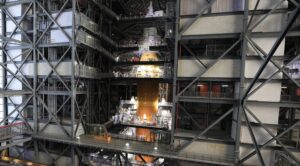
NASA is postponing the rollout of the first Space Launch System for a final pre-launch test by a month to give workers more time to complete vehicle preparations.
The post NASA delays SLS rollout for launch rehearsal appeared first on SpaceNews.
Report: U.S. military needs a better way to buy commercial satellite imagery
Wednesday, 02 February 2022 22:08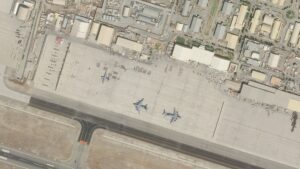
The U.S. military and intelligence community have a growing demand for satellite imagery but their acquisition methods prevent them from taking advantage of a vibrant commercial market, says a new CSIS report.
The post Report: U.S.
Uncrewed Artemis I mission to Moon pushed back
Wednesday, 02 February 2022 20:22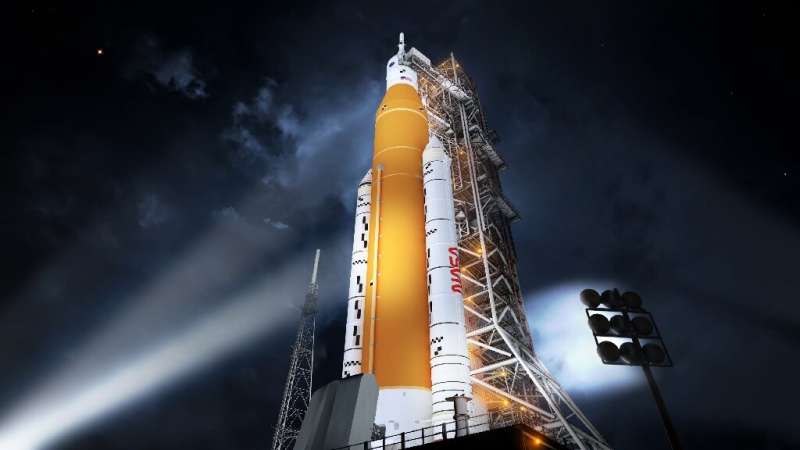
The first mission in NASA's program to take humans back to the Moon has been delayed until spring at the earliest, the US space agency said Wednesday, saying it needed more time to complete safety checks.
The Artemis I launch, initially scheduled for late 2021 and then postponed twice more, will now happen no earlier than April.
"Teams are taking operations a step at a time to ensure the integrated system is ready to safely launch the Artemis I mission. NASA is reviewing launch opportunities in April and May," NASA said in a statement.
Artemis I will be an uncrewed flight test, but will signal the real start of the program, which could eventually see the first woman and the first person of color to step foot on the Moon.
SpaceX launches classified satellite for U.S. National Reconnaissance Office
Wednesday, 02 February 2022 19:52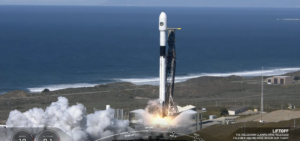
A SpaceX Falcon 9 launched a National Reconnaissance Office mission into orbit Feb. 2 from Vandenberg Space Force Base, California.
The post SpaceX launches classified satellite for U.S. National Reconnaissance Office appeared first on SpaceNews.
NASA and SpaceX investigating delayed Dragon parachute opening
Wednesday, 02 February 2022 15:57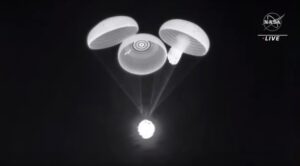
NASA and SpaceX are investigating the delayed opening of a parachute on a cargo Dragon spacecraft that recently returned to Earth, an incident similar to one that took place on a Crew Dragon spacecraft last year.
Incoming! Debris enroute to the Moon
Wednesday, 02 February 2022 14:00
The Moon is set to gain one more crater. A leftover SpaceX Falcon 9 upper stage will impact the lunar surface in early March, marking the first time that a human-made debris item unintentionally reaches our natural satellite.
Just add bubbles for cooler future spacecraft
Wednesday, 02 February 2022 14:00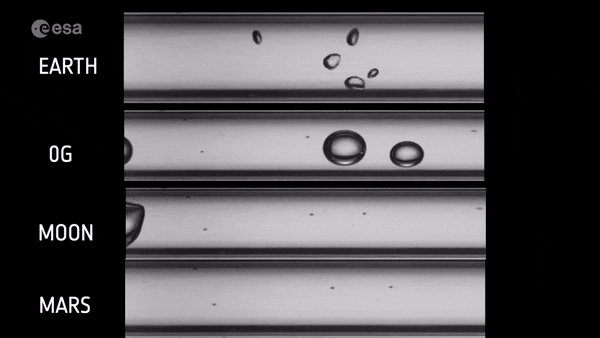
From soft drinks to hot tubs, people add bubbles to liquids for many different reasons. ESA engineers think bubbles produced at the verge of boiling point could help control the temperature of spacecraft in a more efficient and compact way. The main unknown is how bubbles will behave in differing gravities down to weightlessness, so researchers boarded parabolic flight aircraft for testing.
Astronomers lined up under an asteroid's shadow to measure its size precisely
Wednesday, 02 February 2022 12:26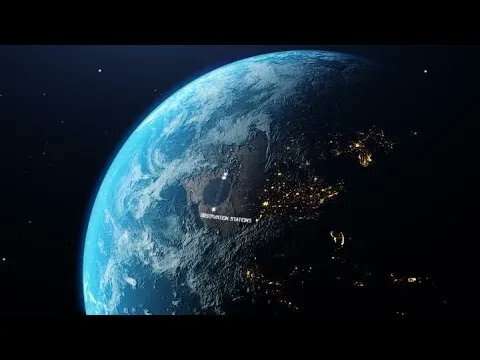
Astronomers will go to great lengths for science. Recently, dozens of astronomers had the misfortune of traveling to one of the most tempting locales in the southwestern U.S.—Las Vegas. But they weren't there for the city's bright lights—they were there to observe the very dim light of a star thousands of light-years away. And what they specifically wanted to see was the light from that star blink out for a few seconds. That lack of light provided the exact data they needed to help them determine the size of Eurybates, one of the Trojan asteroids that will be the focal point of NASA's Lucy mission.
What the scientists were looking for was an occultation. Most people know the most common form of this phenomenon—an eclipse. But occultations can happen with any background star and can be caused by any foreground object. Calculating where these minor occultations of stars by asteroids will occur takes a significant amount of orbital mechanics and processing power. The Earth itself has to be aligned correctly, and the asteroids and stars have to line up just right and be big enough.
A Chinese space tug just grappled a dead satellite
Wednesday, 02 February 2022 11:30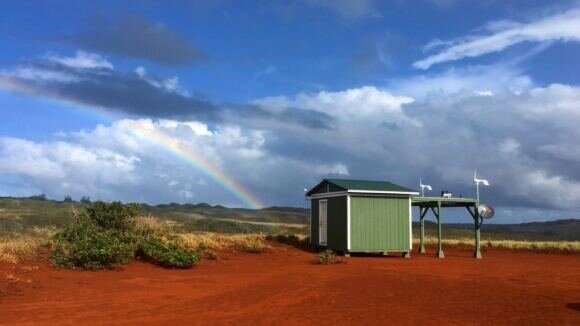
A Chinese satellite pulled a defunct navigation satellite out of the way of other satellites on January 22. The satellite, called SJ-21, appeared to operate as a space tug when it grappled onto the navigation satellite from the Chinese CompassG2 network. The operation details didn't come from Chinese authorities but from a report by ExoAnalytic Solutions, a commercial space monitoring company.
Chinese authorities are tight-lipped about the operation, but what can observations tell us about Chinese capabilities?
Earth's geosynchronous orbit is crowded, so on the face of it, having one less piece of space debris is a good thing for all satellite operators. But people can get suspicious when China does something like this.
GOES-T launch preparations underway
Wednesday, 02 February 2022 11:22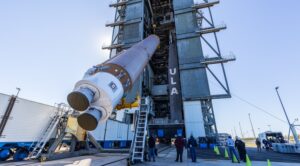
Preparations are underway for the launch of the next in a series of geostationary weather satellites that will also mark the end of a decades-long streak for one company.
The post GOES-T launch preparations underway appeared first on SpaceNews.
Roof of the satnav world
Wednesday, 02 February 2022 07:07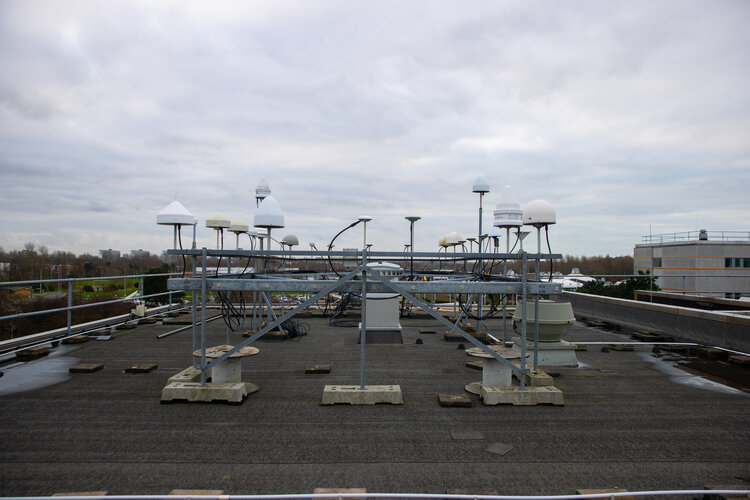 Image:
Roof of the satnav world
Image:
Roof of the satnav world Helicopters Flying at Mars May Glow at Dusk
Wednesday, 02 February 2022 04:55 The whirling blades on drones flying above Mars may cause tiny electric currents to flow in the Martian atmosphere, according to a NASA study. These currents, if large enough, might cause the air surrounding the craft to glow. This process occurs naturally at much larger scales on Earth as a corona or electrical glow sometimes seen on aircraft and ships in electrical storms known as Saint Elmo's
The whirling blades on drones flying above Mars may cause tiny electric currents to flow in the Martian atmosphere, according to a NASA study. These currents, if large enough, might cause the air surrounding the craft to glow. This process occurs naturally at much larger scales on Earth as a corona or electrical glow sometimes seen on aircraft and ships in electrical storms known as Saint Elmo's 